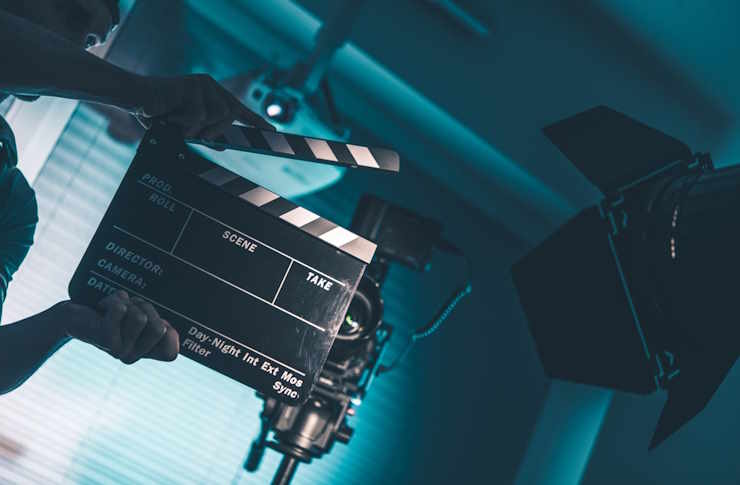Start Studying Cinematography with Top Courses and Workshops in 2025!
Are you passionate about the art of visual storytelling and eager to explore the world of cinematography? As we look ahead to 2025, the field of cinematography continues to evolve, offering exciting opportunities for aspiring filmmakers and visual artists. Whether you're a beginner looking to dip your toes into the world of camera work or a seasoned professional aiming to refine your skills, there's never been a better time to dive into cinematography courses and workshops. Let's explore the top options available and how they can help you master the art of capturing stunning moving images.

What are the key components of modern cinematography techniques?
Modern cinematography techniques have come a long way from the early days of filmmaking. Today’s cinematographers must be well-versed in a range of skills that combine traditional artistry with cutting-edge technology. An introduction to modern cinematography techniques typically covers fundamental concepts such as composition, lighting, camera movement, and framing. These courses often delve into the principles of visual storytelling, teaching students how to use the camera as a tool to evoke emotion and convey narrative. Additionally, modern techniques often incorporate digital workflows, color grading, and post-production processes that are essential in today’s film industry.
How can cinematography courses enhance creative storytelling?
Exploring creative storytelling through camera work is at the heart of many cinematography courses. These programs focus on teaching students how to use visual elements to support and enhance a story’s narrative. Courses often cover topics such as shot selection, scene composition, and visual motifs that can be used to convey themes and character development. Students learn how different camera angles, movements, and lens choices can dramatically affect the audience’s perception of a scene. By mastering these techniques, aspiring cinematographers can develop their unique visual voice and collaborate more effectively with directors to bring stories to life on screen.
What essential equipment and technology are covered in cinematography workshops?
As technology continues to advance, staying up-to-date with essential equipment and technology in today’s cinematography is crucial. Workshops and courses in 2025 are likely to cover a wide range of tools, from traditional film cameras to the latest digital cinema cameras. Students can expect hands-on experience with various lenses, lighting equipment, stabilization systems, and camera rigs. Additionally, courses often introduce participants to industry-standard software for tasks such as shot planning, color grading, and visual effects integration. Understanding how to effectively use and maintain this equipment is fundamental to success in the field of cinematography.
How do industry professionals contribute to cinematography education?
Gaining insights from film industry professionals and academies is an invaluable aspect of cinematography education. Many top courses and workshops feature guest lectures, masterclasses, or mentorship opportunities with experienced cinematographers, directors, and other film professionals. These interactions provide students with real-world knowledge, industry trends, and practical advice that goes beyond textbook learning. Industry professionals can offer guidance on career paths, share their creative processes, and provide networking opportunities that can be crucial for aspiring cinematographers looking to break into the competitive film industry.
What are the benefits of hands-on cinematography workshops?
The practical benefits of hands-on cinematography workshops cannot be overstated. While theoretical knowledge is important, the ability to apply that knowledge in real-world scenarios is what truly develops a cinematographer’s skills. Hands-on workshops provide students with the opportunity to work with professional-grade equipment, experiment with different techniques, and problem-solve in real-time. These experiences often simulate actual film set conditions, helping participants to understand the collaborative nature of filmmaking and the unique challenges that arise during production. Additionally, hands-on workshops allow students to build a portfolio of work, which is essential for showcasing their abilities to potential employers or clients.
What are some top cinematography courses and workshops available in 2025?
As we look toward 2025, several renowned institutions and organizations are expected to offer top-tier cinematography courses and workshops. While specific programs may evolve, here’s a comparison of potential options based on current trends and industry leaders:
| Provider | Course Type | Key Features | Estimated Duration |
|---|---|---|---|
| American Film Institute | MFA Program | Industry connections, hands-on production | 2 years |
| New York Film Academy | Workshop Series | Intensive, equipment-focused training | 4-8 weeks |
| Online Masterclass | Digital Course | Learn from award-winning cinematographers | Self-paced |
| International Film School | Certificate Program | Comprehensive curriculum, international perspective | 1 year |
| ARRI Academy | Technical Workshop | Focus on camera systems and workflow | 1-2 weeks |
Prices, rates, or cost estimates mentioned in this article are based on the latest available information but may change over time. Independent research is advised before making financial decisions.
In conclusion, studying cinematography in 2025 offers a wealth of opportunities for those looking to master the art of visual storytelling. From introductory courses on modern techniques to advanced workshops led by industry professionals, there are options suited for every level of experience and career goal. By combining theoretical knowledge with practical, hands-on experience, aspiring cinematographers can develop the skills needed to succeed in this dynamic and creative field. Whether you’re drawn to the technical aspects of camera work or the artistic elements of visual composition, pursuing cinematography education can open doors to a fascinating and rewarding career in the film industry.




